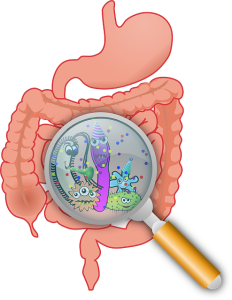 An occasional upset stomach, constipation, heartburn, or diarrhea is likely nothing of concern, says women’s healthcare expert Marla Ahlgrimm. Having a basic understanding about your digestive system – and the things that bother it – is a good first step in understanding your overall health.
An occasional upset stomach, constipation, heartburn, or diarrhea is likely nothing of concern, says women’s healthcare expert Marla Ahlgrimm. Having a basic understanding about your digestive system – and the things that bother it – is a good first step in understanding your overall health.
How does the digestive system work?
According to Marla Ahlgrimm, the digestive tract includes the mouth, esophagus, small intestine, stomach, colon, rectum, and anus. All digested food and liquid is processed through these organs and either absorbed or eliminated. The liver and the pancreas assist in digestion by producing digestive enzymes that break food into nutrients. The gallbladder stores bile, which helps the liver digest fat.
The nutrition in your food is absorbed into the small intestine and then dispersed throughout the bloodstream. Waste products are expelled from the bowels, says Marla Ahlgrimm.
Common digestive issues
Digestive complaints run the gamut from gas and heartburn to constipation, nausea, and vomiting. Usually temporary, these stomach issues may be caused by certain foods, bacteria, illness, menstruation, or pregnancy. It is important to talk to your doctor if you have issues that persist, as these symptoms could be a sign of a more serious digestive disease.
Digestive issues specific to women
Marla Ahlgrimm explains that certain digestive issues, including IBS and gallstones, are more common in women. Other issues, such as heartburn and reflux, tend to show up during pregnancy.
Irritable bowel syndrome (IBS) is a group of symptoms which most often present as abdominal pain, discomfort, and bloating. Many women experience constipation; others uncontrollable diarrhea. IBS may be controlled by changes to your diet and over-the-counter fiber supplements.
Gallstones are what Marla Ahlgrimm describes as hardened material – usually cholesterol – stuck in the gallbladder. Women are two times more likely to experience gallstones due to high estrogen levels – especially during and just after pregnancy.













 Marla Ahlgrimm has co-authored two ground-breaking books,
Marla Ahlgrimm has co-authored two ground-breaking books,